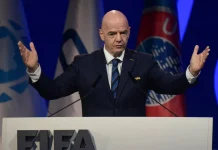For many years now, Saudi Arabia has been considered to be one of the global superpowers where all its wealth mainly comes from its huge oil reserves. And by the announcement by the country itself to bid to host the 2034 FIFA World Cup, economic dependence on oil becomes one of the primary issues in this country. While the kingdom has ambitious plans for its plan to diversify the economy, dependence on oil revenue is huge and requires a lot of risks to settle down without jeopardizing its efforts to fund an event as big as the 2034 FIFA World Cup.
Oil Price Volatility
Saudi Arabia is an oil-dependent economy. It contains a recognized deposit of oil in the world and is also among the leading exporters of petroleum in the whole world. Various circumstances have contributed to frequent shifts in the price of oil in the recent past; actual global supply and demand are unpredictable, political situations are unsteady, and progress in technology has increased the development of other energy resources. Unpredictable oil prices offer a significant risk to Saudi Arabia’s capacity to find funding for grand events such as the World Cup.
When oil prices rise, Saudi Arabia receives an input of revenue that will go into infrastructure projects, economic diversification, and other such long-run uses. However, when oil prices decrease, it shrinks, for instance, during 2014-2016, Saudi Arabia was in a fix.
Saudi Arabia’s latest move to increase the price of oil for its Asian consumers is a new trend in the oil market strategy. Arab Light crude went up by $0.90 to $2.90 on the Oman-Dubai average as part of measures to support the domestic economy due to political instabilities and instability in the international oil market.
The Strives for Diversification of the Kingdom and their Bars
Saudi Arabia has worked on ways of diversifying the economy through the Vision 2030 program which reforms the status of petrochemicals by managing other sectors such as hospitality, media, innovation, and solar.
The Kingdom is investing heavily in visionary projects such as the futuristic city of Neom, promising to be powered completely by renewable energy and house cutting-edge technologies.
While such diversification efforts are appreciable, they are still at the infantile stage. This leap from being a solely oil-based economy into a diversified economy will take hundreds of years if not decades, to arrive at sustainable streams of income. Until then, the country will remain at the mercy of the whims and caprices of fluctuations in oil prices that may, in and of themselves, threaten funding for a global show like the World Cup.
Geopolitical Risks and Uncertainty
The geopolitical situation of the country also brings forth questions about the stability needed to host an international event of this magnitude. The Middle East is a region of deep-rooted political and military tensions, and though Saudi Arabia itself experiences relative stability within its borders, that is not the case for the entire region. From battles over Yemen to regionally fueled rivalries, the task of external elements might make it difficult for Saudi Arabia to provide all teams, spectators, and workforce with safe circumstances during the period of the world cup.
This vagueness may create a problem for the country in ensuring the smooth execution of an event like the FIFA World Cup. A sudden and unexpected surge in conflict or instability in politics can reflect directly on the tourney, thus providing further challenges for the organizers, stakeholders, as well as for international sporting authorities.
Financial Risk of Over-Ambitious Projects
Hosting the FIFA World Cup may cost millions of dollars but also requires a proper commitment to fulfill promises made to FIFA and the world at large. Saudi Arabia’s proposal for hosting the 2034 FIFA World Cup would, without a doubt, involve billions of dollars in investment, but the risks in overambitious projects are as vast.
There are many projects under Saudi Arabia’s Vision 2030-the larger, more ambitious plans and the building of new cities and entertainment venues in addition to transportation systems aimed at long-term growth but with real financial risks if oil revenues do not stabilize. Should they be lower than expected, or global markets reverse, the obstacles Saudi will have to scale on their route to deliver World Cup glory could easily intensify.
Changing the Focus of the Globe and Criticism of Oil-Dependent Countries
The increasing global pressure toward combating climate change and reducing dependency on fossil fuels leads many countries and organizations to ask for more sustainable practices in big events. It would seem somewhat out of place to hold the World Cup in a country heavily dependent on oil.
The fiscal breakeven price in Saudi Arabia is rising due to ambitious spending projects under Vision 2030, which requires higher oil revenues. Recent estimates suggest this breakeven price is expected to reach around $96.20 per barrel in 2024, so high prices are long-term necessary if economic stability is to be maintained.
Conclusion
Thus, whereas Saudi Arabia’s visionary plan to host the FIFA World Cup 2034 represents a growing thirst in the country to play a much more influential role on the global sports map, several challenges lie in wait in many areas. All these risks — volatile oil prices, slow efforts at diversification, environmental considerations, geopolitical risks, and the financial strain of such overambitious projects — only go to mark the uncertainty under which Saudi Arabia will be required to fund and manage such an event.
It is only when it can mitigate such economic and political risks that the kingdom can prove to be a potential host for the FIFA World Cup 2034 with long-term stability and sustainability. Until then, the dependency on oil revenue would be a very serious barrier to the aspirations of the kingdom.













